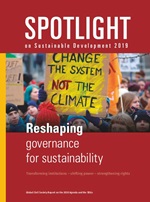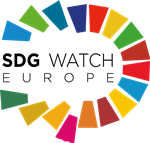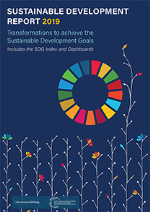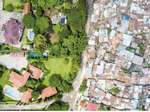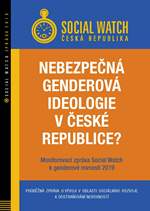Social Watch News
Published on Thu, 2019-07-11 12:47
Four years after the adoption of the 2030 Agenda the world is off-track to achieve the Sustainable Development Goals (SDGs). Most governments have failed to turn the transformational vision of the 2030 Agenda into real transformational policies. Even worse, xenophobia and authoritarianism are on the rise in a growing number of countries. But there are signs of change. The implementation of the 2030 Agenda is not just a matter of better policies. It requires more holistic and more sweeping shifts in how and where power is vested, including through institutional, legal, social, economic and political commitments to realizing human rights and ecological justice. For this reason, the Spotlight Report 2019 has as main topic “reshaping governance for sustainability”. It offers analysis and recommendations on the global governance that sustainability requires, as well as on how to strengthen inclusive and participatory governance to overcome structural obstacles and institutional gaps. Since 2016, the annual Spotlight Report has been published and supported by a broad range of civil society organizations and trade unions. It provides one of the most comprehensive independent assessments of the implementation of the 2030 Agenda and the SDGs. At the roundtable event on July 11th in New York authors of the Spotlight Report 2019 will present key findings and recommendations to participants for discussion. |
|
Source: . Published on Thu, 2019-07-11 12:47
Several reports launched in June and July 2019 call for “transformations” or “transitions”—of economies, of energy systems, of skills and jobs, of health care—in order to achieve the SDGs and ensure that no one is left behind. This SDG Knowledge Weekly brief reviews a selection those reports, with a focus on those that have made waves prior to, or relate their recommendations back to, the High-level Political Forum on Sustainable Development (HLPF). |
Published on Mon, 2019-07-08 00:00
Global civil society report assesses structural obstacles and institutional gaps in the implementation of the 2030 Agenda New York, 8 July 2019: “the world is off-track to achieve the Sustainable Development Goals (SDGs). Most governments have failed to turn the transformational vision of the 2030 Agenda into real transformational policies. Even worse, xenophobia and authoritarianism are on the rise in a growing number of countries.” “The implementation of the 2030 Agenda is not just a matter of better policies. It requires more holistic and more sweeping shifts in how power is vested, including through institutional and governance reforms.” |
|
Source: . Published on Mon, 2019-07-08 00:00
BONN, Jul 8 2019 (IPS) - When UN Member States adopted the 2030 Agenda and its SDGs in September 2015, they signalled with the title Transforming our World that ‘business as usual’ is no longer an option and fundamental changes in politics and society are necessary. Four years later they have to admit that they are off-track to achieve the SDGs. The global civil society report Spotlight on Sustainable Development 2019 shows that in many areas there is no progress at all, and in some even regression. |
| Published on Fri, 2019-07-05 14:34 |
Published on Fri, 2019-07-05 00:25
The EU is still lacking a comprehensive strategy on the implementation of the 2030 Agenda and its ambitious commitments to action. On average, the EU has one of the world’s worst environmental footprint per capita, with our unsustainable lifestyles based on resource and labour exploitation in other parts of the world. The economy of the future needs to take into account the environmental and social impact beyond our borders rather than living in the illusion of a low-carbon, resource efficient Europe that exports resource-intensive production to other parts of the world. At the launching event on July 15th in New York authors of the Spotlight Report Sustainability in Europe will present in some important policy areas where there is an urgent need for action, because the external effects of European policies are not sufficiently taken into account. |
|
Source: . Published on Fri, 2019-07-05 00:00
Denmark, Sweden and Finland are the top ranking countries in terms of sustainable development, while Niger, Chad and the Central African Republic are the worse performers, according to the recently launched Sustainable Development Report 2019, by the Bertelsmann Foundation of Germany and the Sustainable Development Solutions Network, based in New York and Paris.* The Bertelsmann-SDSN report includes 17 “dashboards” with indicators selected by the authors for each of the 17 Sustainable Development Goals, and a Global SDG Index that summarizes them in a single number and allows for the ranking of the 162 countries for which enough data are available. |
Published on Wed, 2019-07-03 00:00
Denmark, Sweden and Finland are the top ranking countries in terms of sustainable development, while Niger, Chad and the Central African Republic are the worse performers, according to the recently launched Sustainable Development Report 2019, by the Bertelsmann Foundation of Germany and the Sustainable Development Solutions Network, based in New York and Paris.* The Bertelsmann-SDSN report includes 17 “dashboards” with indicators selected by the authors for each of the 17 Sustainable Development Goals, and a Global SDG Index that summarizes them in a single number and allows for the ranking of the 162 countries for which enough data are available. |
Published on Wed, 2019-07-03 00:00
Reducing inequalities (SDG10) is essential for overcoming extreme poverty (SDG 1) and a successful implementation of the 2030 Agenda as a whole. Many countries experience high and increasing inequalities. A reversal of this trend is not in sight. Therefore, it is paramount to take political action towards reaching this central goal of the 2030 Agenda. Strong social protection and redistributive policies significantly reduce inequality within countries. Therefore, it is essential to develop overarching strategies, build universal social protection systems as well as assess and increase redistributive capacities. These measures have to ensure that no one is left behind and equitable access to protection against risks and against poverty for all people is guaranteed. The panel will discuss the most persistent barriers to a sustained reduction of inequalities and the contribution of fiscal and social protection policies to overcome inequalities worldwide. |
| Published on Wed, 2019-07-03 00:00 |
SUSCRIBE TO OUR NEWSLETTER

